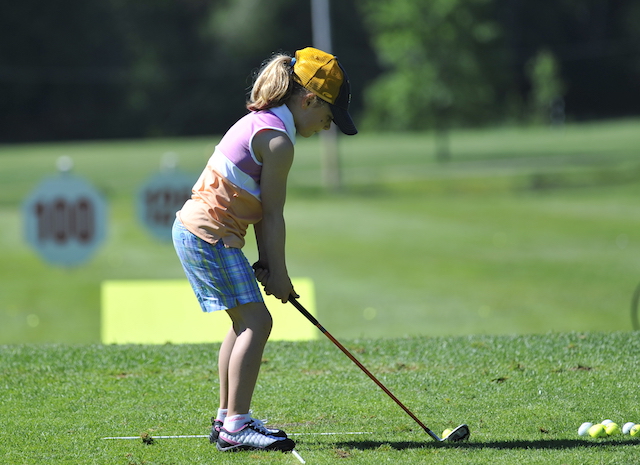NEWS
Encouraging Juniors to Practice Golf

For motivated parents hoping to nourish and support their children’s endeavors, convincing their child to practice – be it piano, tennis, or ballet – is not without its challenges. And while we want to encourage, yet not smother; motivate, but not discourage…most parents also want to ensure the time and money invested in our child’s lessons are reinforced and supported through dedicated practice.
When it comes to golf, we asked Don Law, PGA Junior Golf Camp Director, to share his thoughts on how parents can best support their child’s continued game development from one lesson to the next.
In five quick tips, Law shares his proven practices for getting his students – to do just that – practice.
1. Keep it Age Appropriate
Law notes that the first step is to make sure the practice routine is right for their age. “If your child is still in grade school, you’ll want to introduce practice as a continuation of the fun experienced during the golf lesson. As the child matures, practice sessions should pivot to place greater emphasis on game development and skill improvement.”
2. Schedule It
Just as we schedule homework time, bedtime and lesson time – practice time should also be scheduled.
Law shares that “by making practice time a constant in a young person’s routine, practice becomes a given and part of their weekly schedule.”
3. Allow for Input
According to Law, young golfers who have some level of input in their practice routine are most successful. “By allowing the child to have some input on the specification of their practice schedule, whether it be the day of the week, the duration of the session or practice location, will allow the child to feel that he or she has some input and ‘ownership’ in the development of their game.”
4. Set an End Game
As with so many areas of life, having a goal or an end game, is critical. Law suggests that by having tangible goals, which the young golfer understands and accepts, will make practice time much more effective than when the objectives are not defined. According to Law, “Identified goals serve as powerful motivators and help the young golfer stay focused, thereby making the practice sessions much more meaningful and productive.”
5. Let Them Know You Are Proud…
Many leading child psychologists agree that one of the most beneficial gifts a parent can give a child is to let them know just how proud you are of them. And in the case of young junior golfers, parents can share this very powerful expression, not only when a child hits a great shot, but also when he shakes his or her opponent’s hand at the end of 18 holes; keeps score; and even when the agreed upon practice schedule is committed to and practice goals are met! Law suggests parents “worry less about the outcome, stay focused on the process, and praise the effort.”
Don Law, PGA is the owner/operator of the Don Law Academy and is a Camp Director for the PGA Junior Golf Camps. Law is the recipient of numerous industry awards, including the prestigious PGA National Junior Leader Award; is recognized as a Golf Digest Top 50 Teachers in Florida; and is an inductee in the South Florida PGA Hall of Fame. He will be leading the PGA Junior Golf Camps at four Florida camp locations this summer. You can learn more about Law and the PGA Junior Golf Camps by visiting www.pgajuniorgolfcamps.com.
